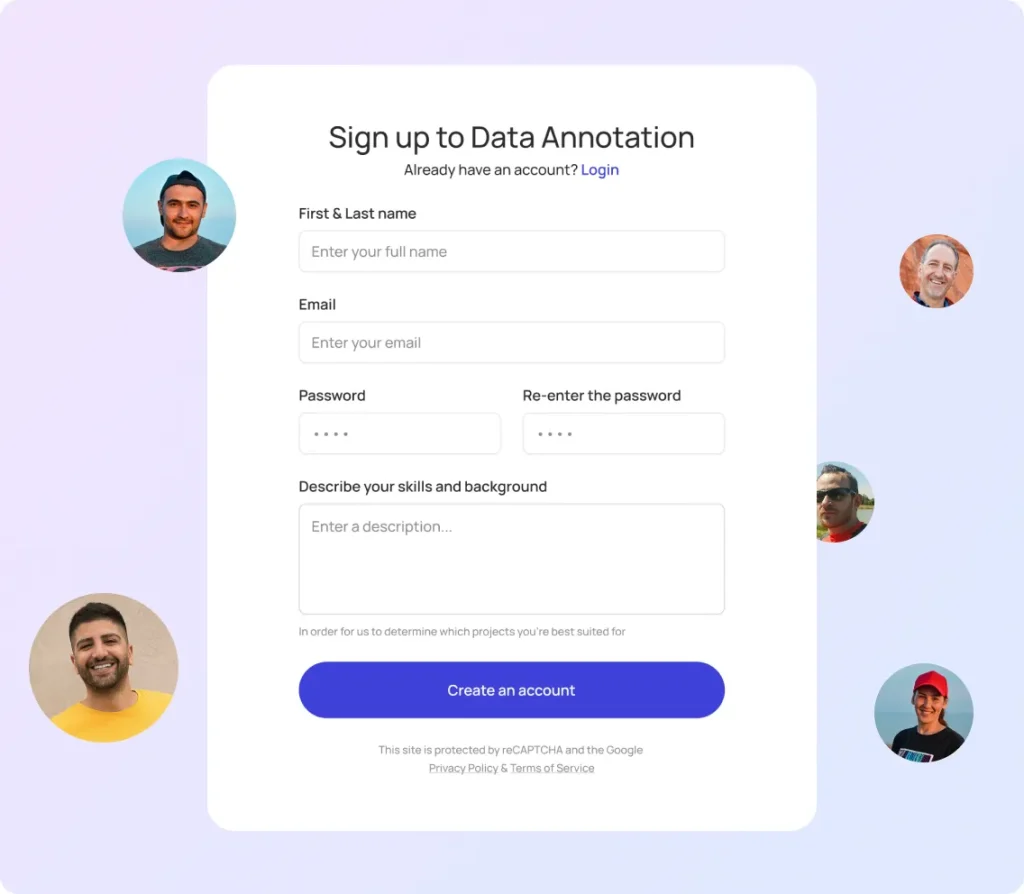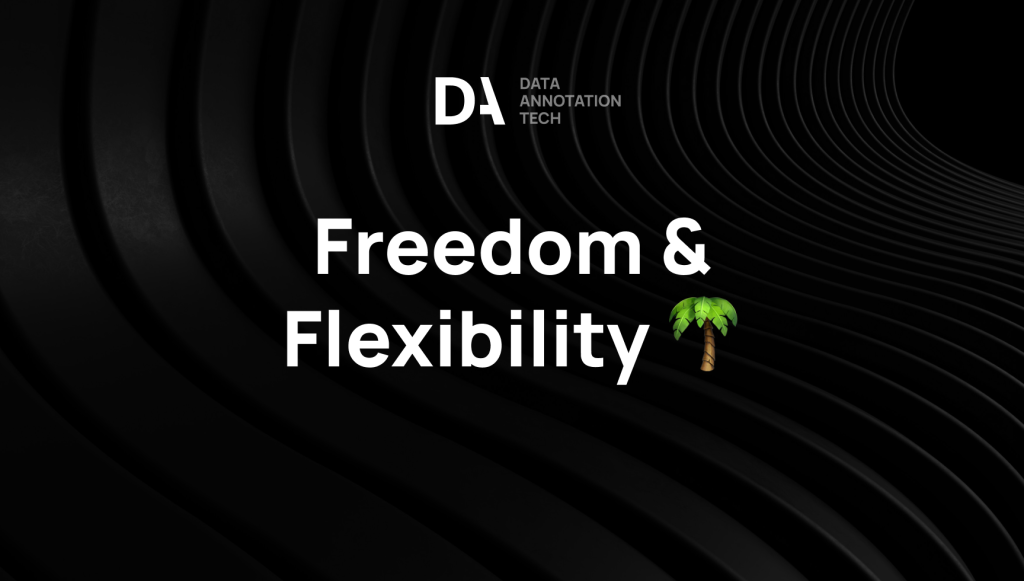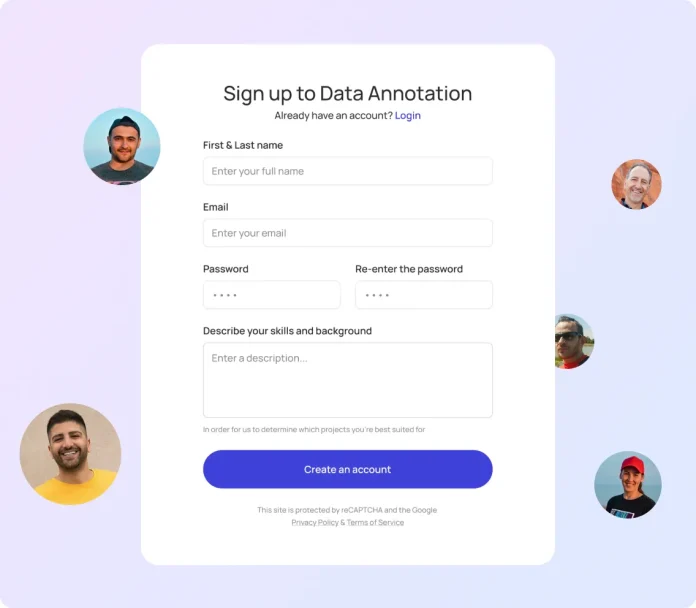In the era of data-driven decision-making and machine learning, data annotation has emerged as a critical tool to help artificial intelligence (AI) systems learn and improve. With numerous platforms popping up to offer annotation work, many wonder: Is Data Annotation Tech Legit? This blog post aims to answer that question by diving into the nuances of the annotation industry, exploring user reviews, and addressing any concerns about Data Annotation Tech’s legitimacy.
What Is Data Annotation Tech?
Data Annotation Tech is an online platform designed to connect workers with businesses needing data annotation services. The platform claims to offer a range of opportunities for individuals to earn extra income by engaging in annotation tasks for various machine learning projects.
Understanding Data Annotation
Before diving into whether Data Annotation Tech is legit, it’s crucial to understand what data annotation is. Data annotation is the process of labeling data so that machine learning models can understand and learn from it. Whether it’s images, text, or audio, data annotation ensures that AI algorithms can interpret data accurately, creating effective models for different applications—from sentiment analysis to chatbot development.
The annotation process is typically conducted by human annotators, using various annotation techniques like manual annotation, AI-assisted annotation, and even automated annotation. The quality of annotations is essential for creating high-quality annotated datasets that are necessary for training machine learning models.
Is Data Annotation Tech Legit?

Data Annotation Tech has gained significant attention lately, but it also comes with mixed reviews and a level of skepticism from users. Let’s break down some of the key points to determine is Data Annotation Tech legit or if it’s a platform you should approach with caution.
Transparency and Reviews
One of the most significant issues that raise questions about the platform’s legitimacy is the absence of contact information. Legitimate companies usually have detailed contact information on their websites, which is something Data Annotation Tech lacks. This raises a red flag for many potential users.
Moreover, some users have reported that many positive experiences shared on forums like Reddit appear to come from new or previously inactive accounts, which gives off a sense of orchestrated reviews. This phenomenon—often known as “guerrilla marketing“—is a common tactic used by many online platforms to boost their reputation.
However, the existence of a dedicated subreddit with thousands of members and active discussions is hard to fabricate, suggesting that there is genuine user engagement.
Positive Aspects
On a more positive note, Data Annotation Tech does have some features that speak to its legitimacy:
- Data Security: The platform follows data protection regulations and employs security measures, such as HTTPS protocols, to ensure safe user data transmission.
- Quality Control Measures: Data Annotation Tech has implemented measures to ensure the correctness of annotations, including multiple reviews and validations. This ensures that the quality of annotated datasets remains high, benefitting businesses that rely on accurate training data.
- Expert Annotators: While they provide opportunities for freelancers, the company also has a team of expert annotators who verify the work. This step ensures that the annotation projects meet industry standards, giving credibility to their services.
Advantages of Using Data Annotation Tech
If you’re considering working with Data Annotation Tech, there are some notable advantages:
1. Wide Range of Annotation Tasks
One of the platform’s significant selling points is the range of projects available. Users can find numerous job opportunities, from simple image labeling tasks to more complex context annotation or sentiment analysis projects. The availability of annotation techniques, such as manual and AI-assisted annotation, allows annotators to diversify their skills.
2. Flexible Working Hours
Like many gig work platforms, Data Annotation Tech offers flexible working hours. Annotators can choose their own schedules, which makes it an attractive option for those looking to earn extra income in their free time. You could work for an hour for tasks involving creative writing or focus on more technical projects for full-time hours.
3. Transparent Payment and Fair Compensation
Many users have reported that they receive fair compensation for their completed annotation tasks. Payment methods are straightforward, and compensation varies depending on the complexity of the job—from annotation for sentiment analysis to datasets for machine learning.
The Downsides
While Data Annotation Tech does offer a promising avenue for earning decent income, it is not without its challenges:
1. Inconsistent Work Opportunities
A common complaint from users is about the inconsistent availability of annotation tasks. Some users have experienced a drop-off in task availability after completing initial assignments. While the platform may offer consistent work opportunities for some, it is not always the case for everyone.
2. Poor Communication Support
Another area where Data Annotation Tech receives criticism is in its customer support. Users have reported delays and inadequate responses from the support team. When issues arise, such as payment methods or task submission problems, users often find themselves without prompt assistance. This lack of responsiveness can be frustrating, especially when trying to resolve crucial issues.
3. Buggy Interface
Several users have pointed out issues with the platform’s interface, including a buggy experience that can make completing tasks more challenging. For instance, some users have experienced issues where they lost their work due to the site crashing during submission. To mitigate such issues, it’s recommended to back up your answers in a separate document while working.
Data Annotation Tech’s Legitimacy
After evaluating the mixed reviews and features of Data Annotation Tech, it becomes clear that there are both green flags and red flags:
Green Flags
- Positive Reputation: Many users have reported positive experiences and accurate annotations.
- Security Measures: The platform uses HTTPS protocols and follows data protection regulations.
- Quality Assurance: Multiple levels of review and expert annotators provide some level of quality control.
- Range of Projects: Users have access to a wide variety of projects, making it easier to find suitable work.
Red Flags
- Lack of Contact Information: The absence of a contact page raises concerns about transparency.
- Inconsistent Reviews: The presence of what appear to be orchestrated reviews makes it difficult to gauge the platform’s reliability.
- Customer Support Issues: The lack of responsiveness in the customer support department is a significant drawback.
Innovations in Data Annotation Technology

Data annotation is a growing industry, with new techniques and innovations constantly improving its effectiveness. Innovations in annotation technology include the development of AI-assisted annotation tools, which make the annotation process more efficient while reducing errors. These advancements are helping companies like Data Annotation Tech improve their services by creating cost-effective annotation solutions.
In particular, the use of automated annotation systems is becoming more common, reducing the need for manual annotation while still maintaining high-quality work. However, human annotators remain crucial, especially for nuanced tasks like annotation for sentiment analysis, where understanding context is key.
Should You Join Data Annotation Tech?
If you’re looking for a flexible way to earn extra money or gain experience in the growing field of data annotation, Data Annotation Tech may be worth considering. However, it’s essential to be aware of the potential downsides, such as the inconsistency of tasks and issues with customer support.
For those interested in machine learning models and the annotation industry, platforms like Data Annotation Tech offer a good starting point. The work done by annotators helps create accurate training datasets, which are crucial for developing effective AI systems. Whether you’re a student, freelancer, or someone looking for flexible working hours, there are opportunities to be found.
Conclusion
So, is Data Annotation Tech legit? The answer is both yes and no. The platform offers real opportunities for users to earn money by contributing to annotation projects, but it also has drawbacks that cannot be ignored. The lack of transparency, inconsistent work availability, and customer support issues are notable concerns.
However, if approached with caution and used as a side hustle rather than a primary source of income, Data Annotation Tech can provide decent money for those willing to take on annotation tasks. The platform’s engagement and some of the positive reviews indicate that it is not a complete scam but rather a platform with both strengths and weaknesses.
ALSO READ: Why Are Mobile Devices Critical to a Digital Forensics Investigation?
FAQs
The amount you can make depends on the complexity of the tasks and the number of tasks available. Users can earn decent income by completing a range of tasks, but there is no guarantee of consistent work.
While there are some concerns about transparency and customer support, there is no evidence to suggest that Data Annotation Tech is a scam. However, users should proceed with caution.
Tasks range from manual annotation to more advanced projects involving sentiment analysis and AI-assisted annotation. The platform offers a diverse selection of projects to match different skill levels.
To get started, you need to sign up on their website, go through the initial assessment, and begin applying for available annotation tasks. Ensure you meet the application requirements to increase your chances of being selected.
The platform has received mixed reviews. Some users report positive experiences, while others have raised concerns about orchestrated reviews and poor support. It’s essential to consider both sides before making a decision.
